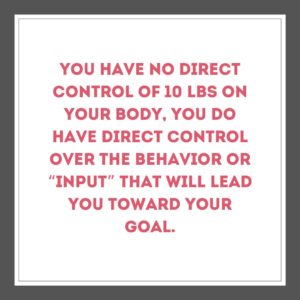“We are what we repeatedly do. Success is not an action, but a habit.” – Aristotle
It’s clear that our daily habits have a powerful influence on our lives. Many of us are aware of the shifts we need to make in our lifestyle choices, yet struggle with sustaining the positive change we desire. The good news is, there are decades of research that show long-term habit change is possible. Leaning on science and proven strategies can support us with the process.
NAKOAWELL is dedicated to supporting the elevation toward the “Wellness Warrior” lifestyle. Our team of experts and wellness coaches have compiled a list of practical tips to guide you toward successfully reaching your health and wellness goals.
THE NAKOA “WAY” OF HEALTHY HABITS FOR LIFE
1) ARE YOU REALLY READY TO CHANGE?
Wanting to make changes and being ready to make changes are two very different things. If you’re in the “thinking about it” stage but feel daunted by the amount of effort that goes along with making meaningful and lasting adjustments, you might need some extra motivation. Creating a “pros and cons” list of what a specific change might mean for your life can give you a clearer understanding of what your roadblocks are so that you can address them. It can also highlight the benefits of that change and provide you with something to really strive for. Put the PRO list on your refrigerator or the bathroom mirror as a daily reminder.
2) UNDERSTAND YOUR CURRENT HABITS
Habits are things that you do on a routine basis that are done without too much thought or effort. Some examples of a habit are brushing your teeth twice a day, taking a shower, and getting dressed before you go outside. While these habits may seem rudimentary, remember that you learned them as a child, and you had to be taught – sometimes while kicking and fighting against them.
The adult brain is even less malleable than a stubborn child’s, so creating new habits requires a restructuring of what you do and don’t know by becoming aware of what you do on a regular basis. For example, maybe you tend to smoke more when you overeat, or that you overeat if you eat while watching TV. Understanding your current habits is key to changing them.
DETERMINE YOUR “WHY”
Spend some time in self-reflection. You’ll often find that the reasons for making changes are much larger than just wanting to be a dress or pants size smaller. Being healthy and “well” translates to a higher quality of life. Being “lighter” means it’s easier to keep up with your kids and doing the activities you enjoy. Having a healthy heart means more time with the ones you love. When you get out of the mindset of calorie counting and into the mindset of blessing-counting, making changes becomes a little more rewarding. What is your driving and motivating “WHY?” You may be more compelled to stay the course when your “why?” is something bigger than just you and your desires.
 ESTABLISH “INPUT” BASED GOALS
ESTABLISH “INPUT” BASED GOALS
We certainly support any health goal, whether it’s losing 10 pounds, running a marathon, or being strong enough to bench press 200 lbs. Making your goals about what you put IN rather than what you get out will allow you to track specific behaviors that set you up for actually meeting your goal.
For example: I will drink one less soda a day for three months vs. I want to lose 10 lbs.
While you have no direct control over 10 lbs on your body, you do have direct control over the behavior or “input” that will lead you toward your goal. This type of input-based goal setting sets you up for greater success and gives you immediate insight into any setback so you can get back on track more quickly.
EXPECT GOALS TO CHANGE
As you continue to make “input” based changes towards your end goal, plan to make adjustments. Making that one simple change every week will add up quickly, meaning that you might be ready to increase your input or back it down a notch. If your goal is strength based, maybe you start adding more weight or reps to your sessions. Sometimes you achieve a short-term goal only to realize that it’s not what you had planned. Instead of looking for perfection or expecting a specific outcome, think about what achieving your ultimate goal really means, how you want to feel, and what it means you can take on next.
CREATE A TIME FRAME “WHEN”
Setting a timeline is a critical success factor and creates additional urgency to reach the end goal. Don’t let life get in the way of your goals! Set and stick to a schedule for your new activities like exercise, grocery shopping, cooking, meditation time, sleeping hours. The more you do it, the more it becomes integral to your daily life. Just like brushing your teeth, it becomes a routine, habitual part of your life
Recruit all the tools and technology available to keep you on track such as calendar synchronization, reminders, alarms, etc. to keep you on schedule with your workouts, meal prep, and anything else that needs to be made a priority when working towards your goals.
START A JOURNAL
Journaling and tracking your actions can help to keep you accountable. Even when you may not meet your input goals for the day, having a clear picture of your efforts creates a positive mindset and keeps you on track towards your goals. Journaling your thoughts and frustrations during this time can also help you to identify problems and work through them and cultivates mindfulness throughout the day. How did you feel when you ate that donut? How can you resist next time? Remember, you only really fail if you don’t learn anything or stop trying. Failure is just an opportunity to understand what doesn’t work and to try something else.
GET FRIENDLY WITH TECHNOLOGY
There are many tools and devices readily available to help you keep track of your daily fitness activities as well as apps to help you with healthy recipes, grocery shopping lists, meditation techniques, stress management, and sleep cycle analysis. A simple reminder from a fitness tracker or a phone saying you are only 500 steps away from your daily goal might be the extra motivation you need.
TELL SOMEONE
Sometimes just telling someone that you are working on a goal can add that extra layer of accountability to help you stay on course. Even better, get friends and loved ones involved. Having a network of people, you trust and can look to for guidance is a huge success factor. Get friends to go to a group fitness class, join a gym, or go on walking dates with you. We are often told to surround ourselves with people we want to be like, and this holds true when it comes to exercise. Challenge friends to a replace soda with water, host a drink off, or see who can clock the most steps in one week. When you succeed, you’ll have people to celebrate with!
CREATE A CONTINGENCY PLAN
There are going to be good days and bad days on your journey towards your goals. Knowing where pitfalls and roadblocks are can help you plan for or avoid certain situations that could set you back. If you know someone is having a birthday at the office and you’re a sucker for birthday cake, pack a calorie conscious lunch or schedule some extra time to walk during your breaks. Do deadlines keep you from making it to your favorite exercise class? Try home workout videos or try to make it up later in the week. Remember that success is about cumulative effort over time.
EXPECT SETBACKS
Setbacks and slips happen. Not allowing the setback to derail us completely is what determines our success. Remind yourself that every day is a new day to try again, start over, do it better, etc.
Accomplishing new, positive things for yourself can feel exciting and rewarding. But knowing that there will be times when you feel defeated or about to give-up should be expected. It’s not about the fact that you got set back or slipped up. It’s about how you respond to a setback or slip up. Be kind yet firm with yourself. Give yourself credit for what you accomplished so far and then commit to getting back on track.
REWARD YOURSELF
When you achieve your goals, you should be rewarded. Being rewarded further solidifies your positive relationship with healthy habits. Find healthy ways to celebrate your success. The reward should reflect the goal achieved. Lose 10 lbs? Buy some new clothes. Ran a marathon or achieved a strength training goal? You earned a burger! Whatever it is, make sure it’s something that reinforces your success and makes you want to keep going!
At NAKOAWELL, we know how difficult making change can be. We know because we’ve been there, done that, and many of us are in the process of working towards our own goals and habit changes. It’s a lifelong process. But if you do it well, it’s a great process.
Overall, making lifestyle adjustments and creating new habits is no small feat. Taking it step by step, making realistic, input-based goals, and having both patience and perseverance will get you to where you want to be.
Contributing Authors







